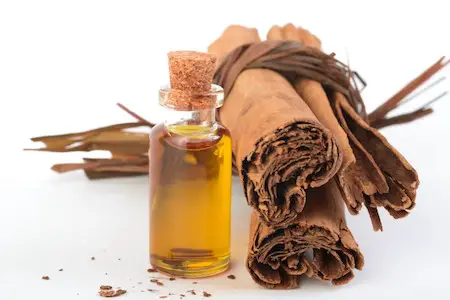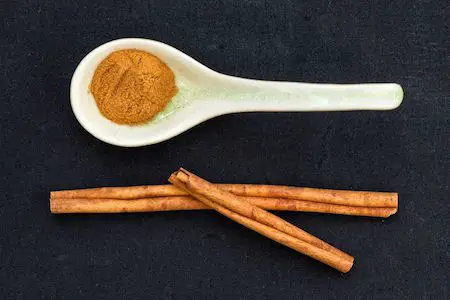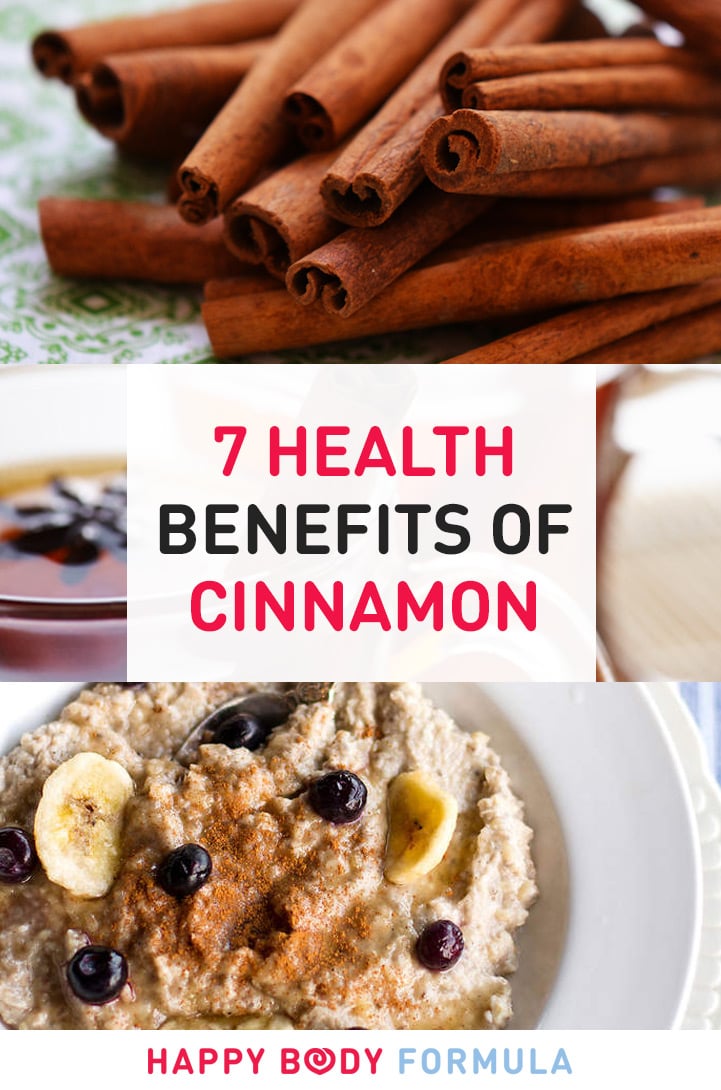Medically review by Kim Langdon

Chances are, cinnamon goes to good use in your kitchen.
It's not exactly a difficult food to add into the diet.
With that said, you're likely reaping lots of health benefits; do you know about just why cinnamon is so good for you, and how it works in the body?
Whether you like to use it in warming, savory dishes for a subtle sweetness or you're sprinkling it on fresh fruit for a little extra flavor, cinnamon has some amazing advantages.
A little goes a long way, as just a 1/2 teaspoon per day can give you all the boost you need.
- Anti-inflammatory properties
- Improves insulin resistance
- Reduces the risk of neurodegenerative disease
- Fights infection
- Reduces the risk of cancer
- Contributes to healthy skin
Antioxidants
When it comes to the definitive ranking of the world's most potent medicinal spices, cinnamon comes in at number one.
This superstar has some serious antioxidant power. Antioxidants help slow the aging process, reduce oxidative stress and rid the body of toxins.
In terms of the most concentrated sources of antioxidants, cinnamon is #7 on the list.
A little goes a long way. Sprinkle a bit on your sweet potato at dinner or add it to yogurt.
Anti-inflammatory

Turmeric is arguably the most well-known anti-inflammatory spice, but cinnamon doesn't get quite enough credit.
Chronic inflammation has a huge impact on the body and even weight. Over time, it can also attribute to chronic stress.
A daily dose of cinnamon can help the body restore normal levels of inflammation. Specifically, its flavonoid compounds (an antioxidant) have been observed in the lowering of inflammation.
Improves insulin resistance
Cinnamon is a diabetic's best friend. Even if you're not diabetic, you could very well suffer from insulin resistance.
This means your body doesn't quite use glucose properly, and your blood sugar levels are very sensitive to spikes and drops.
Insulin - a hormone - helps to regulate glucose utilization and fat deposition, so insulin resistance can be a contributing factor to weight gain or the inability to lose weight.
A little cinnamon goes a long way in helping transport glucose properly after eating something sugary; in essence, it lessens the blow to the bloodstream making our bodies less sensitive to the shift.
Reduces risk of neurodegenerative disease

We've been rambling on and on about brain health on The Happy Body Formula blog recently.
From 10 foods you should eat for optimal brain health and some mindful movement exercises you can do to stay sharp, it's no question that taking care of this muscle is absolutely imperative.
Cinnamon is especially powerful in terms of warding off degenerative diseases like Alzheimer's and Parkinson's.
This spice can help inhibit tau - a protein - in the brain which is connected to Alzheimer's.
Moreover, cinnamon's impact was studied in rats with Parkinson's disease; the results concluded that cinnamon helps protect neurons and improve motor function.
Fights infection
Cinnamon is amazing food and spice, and much of its benefits can be reaped with a dash of it here and there.
It's antimicrobial and infection-fighting properties are best taken advantage of in cinnamon oil, though.
In many cultures, cinnamon is valued as a medicinal herb above all; take it from the pros! Cinnamon oil helps protect the body against some bacteria which can help you fight off colds and cases of flu.
It's even been said that it can help reduce the risk of HIV - pretty powerful, huh?
Finally, it's good for the gut; the anti-fungal activities in cinnamon oil can be effective in treating Candida infection.
Reduces risk of cancer

Thanks to cinnamon's impressive concentration of antioxidants, it proves to be one of the greatest cancer-fighting foods on the planet.
It can protect against DNA damage, cell mutation, and tumor growth.
Furthermore, it has been observed in aiding self-destruction of pre-existing cancer cells.
It can also help to improve colon health making it doubly effective for protecting the body against colon cancer.
Contributes to healthy skin
While the brain is arguably the body's most important organ, the skin is our largest organ, and that means we have just a bit more ground to cover in taking care of it!
You can read up on the nutrients your skin needs to stay healthy and glowing here. Cinnamon comes into play because of its antibiotic and antimicrobial properties.
These aid in lessening irritation in the skin - allergic reactions, rashes, and infection - including acne, eczema, and psoriasis.
Double up cinnamon oil with honey and use it as a spot treatment!
What are some of your favorite ways to add cinnamon into your diet? Share with us below!
This article was fact checked for accuracy by Dr. Kim Langdon, MD. As always, this is not personal medical advice and we recommend that you talk with your doctor.
Share on Pinterest

References
Kimberly Langdon M.D. is a retired University-trained obstetrician/gynecologist with 19-years of clinical experience. She delivered over 2000 babies to mothers in a suburban Midwestern community.
